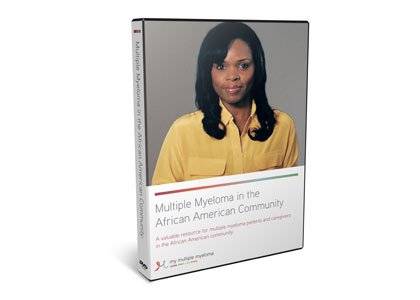Although it is a rare blood cancer, multiple myeloma is an aggressive and rapidly progressive illness that causes certain white blood cells, normally responsible for combating illnesses, to be overproduced. This proliferation of abnormal cells is known as myeloma cells, and can lead to the growth of tumors that may potentially spread to multiple sites in the body.
During the past 10 to 15 years there has been a concentrated effort in developing updated and more effective medical treatments for this disease, which sees an average of 15,000-20,000 newly diagnosed cases in the United States each year. New therapies are providing more effective treatment options for patients that increase overall survival, in some cases, to as many as 10 years post-diagnosis. Multiple myeloma, not unlike many cancers, has become more of a managed illness for patients and their caregivers, but the illness is not without one curious health phenomenon.
For the past three decades, the incident and mortality rates for multiple myeloma have mostly leveled off, except within the black community, which has seen significant growth when compared to Caucasian populations. This rare form of blood cancer disproportionately affects African Americans and is one of the leading causes of cancer deaths among blacks. Studies indicate that African Americans are twice as likely to be diagnosed with this disease versus caucasians and other ethnic groups, and data also points toward an increased incidence and younger onset of the disease.
Treatment Challenges Remain
The causes and reasons for this spike of activity, as well as the racial disparity in incidence and mortality remain unclear. Various elements such as diet, socioeconomic status, and occupation have been closely studied to determine the root causes of this discrepancy, but nothing conclusive has been drawn. Although the elevated risk of contracting multiple myeloma is seemingly elevated among blacks who live at certain socioeconomic levels and who operate within particular occupations, further research and discussion is required in order to determine the environmental and genetic factors that may determine multiple myeloma. Additionally, data demonstrates that African-Americans also have a lower rate for becoming potential bone marrow and stem cell donors than other indigenous groups, and are less likely to participate in clinical trials with novel treatments. These facts are disconcerting among public health leaders who shoulder the responsibility to help these patients receive current disease information, but use that data for treatment.
What makes myeloma a challenge to diagnose is that disease symptoms can also be found in other illnesses. For example, one of the medical conditions often caused by a myeloma tumor is the destruction of bone, which may not be seen initially as cancer-related. With a clearer understanding of the genesis of the myeloma patient’s condition, the attending physician may suggest the intervention of an oncologist who will make a more accurate cancer diagnosis. It’s critical for African Americans who experience any type of bone or muscle pain, numbness in their extremities, muscle weakness or infections, including pneumonia, to schedule an appointment with their physician to determine the extent of their condition.
Beyond treatment. An Informed Black Community
There are a growing number of available resources to African Americans who are living with multiple myeloma or those who suspect they may have contracted this blood cancer. Groups like the Multiple Myeloma Research Foundation, International Myeloma Foundation and Tackle Cancer Foundation are excellent sources for gathering important information about symptoms, treatment options, oncologists and a myriad of data that may impact a future cancer patient. In fact, one of these resources that is directed at African Americans and recently became available is an educational DVD co-sponsored by the Tackle Cancer Foundation and Millennium: The Takeda Oncology Company. “Multiple Myeloma in the African American Community” is an effective resource for patients and caregivers and spearheaded by Kimberly Alexander, who lost her husband, Elijah, to multiple myeloma.
“My desire to stay educated about multiple myeloma didn’t end when my husband lost his battle with cancer due to complications from the disease. I will forever be concerned about the possible implications this may have for our children, grand children and future generations. Because I know the of the incidence rates of multiple myeloma within the African American community my wish for a cure goes beyond doing something in memory of my husband, it could be the difference maker for our family for years to come.”
For more information or to obtain this DVD, visit: www.mymultiplemyeloma.com.
Kathy Gram is senior director, Patient Advocacy, Takeda Pharmaceuticals; and Kimberly Alexander is president, Tackle Cancer Foundation, which informs the public about multiple myeloma.
